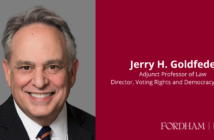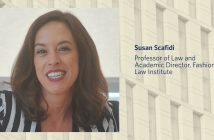Jed Shugerman and Ethan Leib wrote an opinion piece for the Washington Post about President Trump’s pardon power as it relates to self-protection.
If President Trump is counting on his pardon power as a way of eluding special counsel Robert S. Mueller III, he is mistaken. He is ignoring a core part of the Constitution that most of us have overlooked, too. Most people assume that the president wields absolute authority to pardon others and potentially even himself. However, the Constitution, correctly understood, imposes limits on a president’s ability to grant pardons if they are issued for the purpose of self-protection.
This is not because of some abstract notion of political morality or a vague commitment to the rule of law. It is not because of the maxim, “No one may be the judge in his own case,” because a pardon is an executive action, not a judicial act.
Rather, the answer lies in a neglected part of the Constitution: Article II, Section 3, which directs that the president “shall take Care that the Laws be faithfully executed.”
…
The language of faith here is no accident: The concept flows from the Latin “fiducia,” meaning faith. Lawyers in the 18th century used the phrase “faithfully execute” in legal instruments such as trusts to impose duties of loyalty and care to others, and the phrase appears in many colonial corporate charters and early state constitutions. The phrase “faithfully execute” incorporates the president’s obligation to have fidelity to the best interests of the people. Think of the common-law concept of fiduciary duty applied to lawyers and agents, transplanted to the public sector. These commitments are as foundational to constitutional law as they are to business ethics and corporate law.
The framers imported the well-known fiduciary duty of loyalty from the common law precisely to constrain the exercise of the president’s powers under the Constitution. They used the language of faith and trust to signal to courts and to officials that they were invoking well-known commands of loyalty long recognized at common law. Our Constitution’s designers wanted public officials to be subject to the same kinds of fiduciary obligations that CEOs, trustees and lawyers are routinely held to in the private sector. Those duties prohibit self-dealing and acting under a conflict of interest.
Therefore, “self-pardoning” or pardoning your closest associates for self-interested reasons should not pass legal muster, because it violates the fiduciary law of public office.
…
To sustain our framers’ vision of a Constitution with offices filled by public fiduciaries, we must find ways to enforce the president’s oath and his legal responsibility of “faithful execution.” That means executive powers that can sometimes look discretionary actually must be limited by fiduciary principles. Thus, a president faithful to the Constitution’s original meaning and faithful to the public, rather than his own self-interest, may not legally issue self-dealing pardons, nor may he fire executive officials largely to protect himself.




